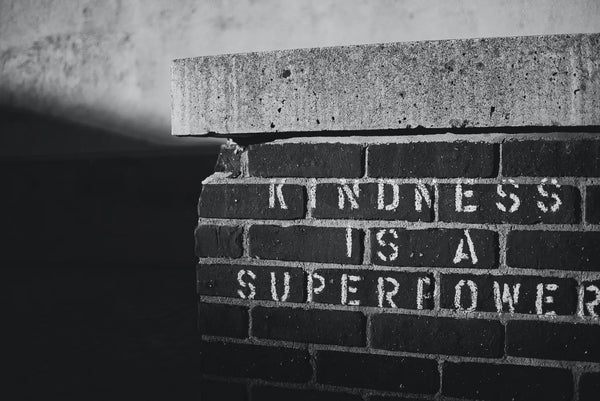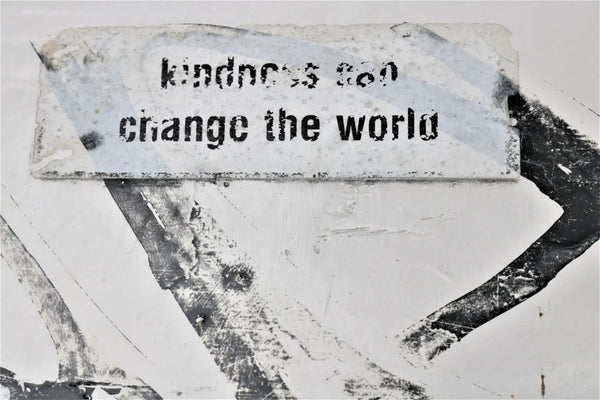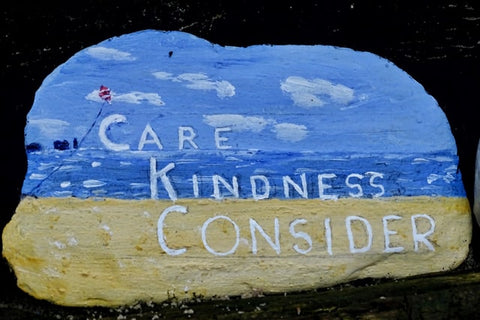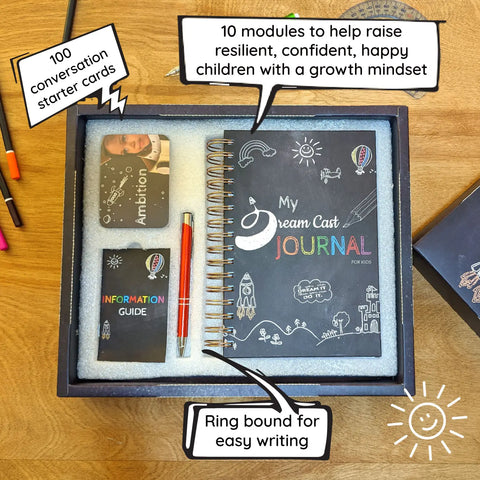What is kindness and why kindness is important for kids?
“Three things in human life are important: the first is to be kind; the second is to be kind; and the third is to be kind.” - Henry James
Kindness refers to behaviors toward others that are compassionate, genuine and require the ability to empathize. Kindness is caring about others and doing things to help make their lives better. It allows us to connect with other people and build meaningful relationships.
Why is teaching kindness important?
As parents, you may be asking why kindness is important? After all, there are so many more important aspects like making sure that our kids have access to a good education, which is often held up as the route to success. Don't get me wrong, education is important and some parents may worry teaching kindness could actually cause a child to potentially lose their edge in today’s competitive world.
Well, why is kindness so powerful? Research shows that kindness has a positive influence on a range of academic, health, and social outcomes for kids. When we are kind, hormones are released in the brain which protect heart health, reduce stress and increase positive feelings.
Children also experience more fulfilling and healthy relationships with those around them because they are socially aware and can empathize with others.

Photo by Andrew Thornebrooke
Why is kindness Important for your kids to learn?
Teaching our kids why kindness is important can help set our children up in good stead to be successful and happy adults. Teaching kindness increases their self-esteem, increases motivation to learn, improves attentiveness, and decreases negative behaviour such as bullying.
A study of nine to 11-year-olds found that those students who regularly performed kind acts were, not only more socially acceptable to their peers, but their actions benefited the well being of the entire class as the students were more likely to be inclusive and less likely to bully each other and help them develop positive perceptions of their world.
Teaching them to do nice things for other people now could be the key to helping them recognize opportunities to show kindness later in life.
While your child may pick up a few lessons on why kindness is important by observing their peers, they'll also learn from the example set by their parents.
Perform acts of kindness with your child to teach them how to be generous, compassionate, and giving.
To get you started, download our free random acts of kindness printables here.

Photo by: Stefano Valtorta @stefanovaltorta
8 steps to foster kindness in your child.
- Help with household chores and cleaning up
- Donating items to people in need
- Write thank you note
- Do chores for someone
- Care for animals
- Make a gift for someone
- Give someone a compliment
-
Encourage a daily journaling practice.
1. Help with Household chores and cleaning up
The first step in kindness for a young child is helping at home. Provide your child with opportunities to be helpful around the house in order to teach kindness. Weave lessons of kindness into your daily routine.
Then, when your child comes home from school, ask them to tell you two ways that people were helpful to them during the day. You may also want to ask how it made them feel when someone helped, and when they helped others.
2. Donate items to people in need
Gather gently used toys and donate them to an orphanage, homeless shelter, or domestic violence shelter. Encourage your child to pick out which toys they no longer need. Talk to your child about where the toys are going and let them pick out which toys they are willing to donate.
Help your child identify clothes that they can donate to other children. Give them some say over which items they want to donate.
Make a meal and deliver it to an elderly neighbor, a relative, or a friend.
Donate gently used books to the library or a charity.
3. Thank You items (notes and rocks)
Thank you notes don’t have to involve forcing your kids to write letters to everyone after they've received gifts. Instead, teach your child there are always people you can thank outside of holidays. simply write the words 'thank you' on a note or paint it on a rock, and give it as a gift to some at school.
Point out all the people who work behind the scenes to make life better and encourage your child to thank them.
4. Do Chores for Someone
Provide acts of service for people who may need a helping hand. When you make it a regular habit to do so, your child will learn to recognize people in need and opportunities when they can pitch in and start grasping why kindness is important in society and the impact it can have on someone else.

Photo by Belinda Fewings on Unsplash
5. Care for animals
Children often love doing acts of kindness that involve animals, it also helps create the link between why kindness is important and how it helps the animals they naturally love and care for.
-
Ask to volunteer at a local animal shelter. Some shelters may allow kids to assist with simple chores, such as putting away donations or getting food ready for the animals.
-
Some animal shelters allow kids to read to dogs. Inquire about an opportunity for your child to share stories or read books to animals who may feel lonely at the shelter.
-
Volunteer to walk someone’s dog or care for a pet whose owner will be out of town.
-
Help your child pick out a special treat for your pet.
6. Make a gift for someone
Encourage your child to create small gifts they can give away to others. Gifts could be simple crafts that they make or pictures that they draw. Rock painting or crafting with nature is super populate these days and your child can even start selling their work (yes, people buy rocks).
7. Give someone a compliment
Random acts of kindness can be as simple as saying something nice to someone. Teach your child to make it a habit to offer compliments and praise other people’s efforts.
-
Set a goal at the beginning of the day to give away kind words and compliments. Whether your child says, “I like your sneakers,” to another child at the playground, or they say, “Your hair looks good today,” to their sister, talk about giving compliments to people.
-
I love this one, carry around colored note cards. And let your child write small compliments on them to leave for other people. e.g. at a table at a restaurant to compliment your server
8. Encourage a daily journaling practice
Journaling gives your brain a bit of time to quieten and this brings the powerful effects of allowing yourself time to feel aware. There has never been a better time to reflect, refocus, and reset at the end of each day. Help your child learn why kindness is important – to themselves and the world around them.
-----------------------
-----------------------
Dream Cast Kids Journal helps teach empathy.
We have included writing prompt to help reinforce the concepts such as empathy and kindness, gratitude and more in both the Dream Cast Journal and Dream Cast Conversation Starter Cards tying the learning experience together perfectly.










